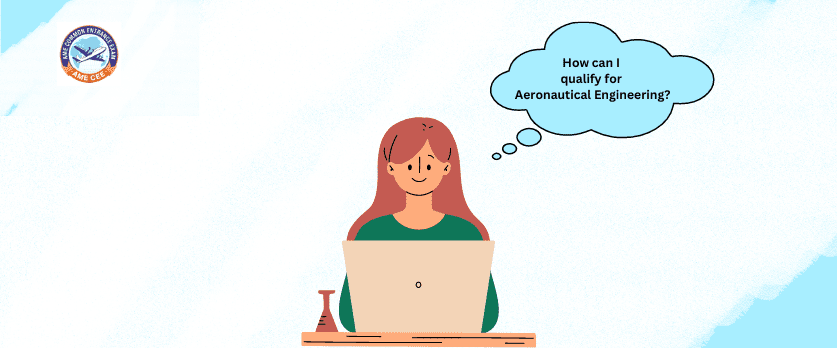Aeronautical Engineering is a dynamic field that focuses on the design, development, and maintenance of aircraft and spacecraft. Aspiring aeronautical engineers undergo specialized education to master the principles and technologies shaping the aviation and aerospace industries.
Importance of Aeronautical Engineering Qualification
A qualification in Aeronautical Engineering is essential for those who aspire to contribute to advancements in aviation technology, aircraft design, and aerospace innovation. This qualification opens doors to diverse career opportunities in both the private and public sectors of the aerospace industry.
Key Details
Eligibility Criteria
| Eligibility | Description |
| Educational Background | Typically, Require 10+2 with physics, chemistry and maths. |
| Prerequisites | Strong foundation in mathematics and physics is essential. |
| Entry Exams | Some programs may have specific entry exams or requirements. |
| Additional Requirements | Requirements may vary by institution, and some may have specific prerequisites. |
Training and Education
| Aspect | Description |
| Curriculum | Aeronautical engineering programs cover subjects like aerodynamics, propulsion, and materials science. |
| Practical Training | Hands-on experience through labs, projects, and internships is integral to the learning process. |
| Industry Collaboration | Collaboration with aerospace companies provides real-world exposure and networking opportunities. |
Career Opportunities
| Aspect | Description |
| Aerospace Industry | Opportunities in aircraft and spacecraft design, manufacturing, maintenance, and research. |
| Government Agencies | Roles in national and international aerospace agencies and defense organizations. |
| Research and Development | Contribution to cutting-edge research in aeronautical and aerospace technologies. |
FAQs
Q1. What is the minimum educational requirement for Aeronautical Engineering?
A. Typically, a bachelor’s degree in Aeronautical Engineering or a related field.
Q2. Are there age restrictions for pursuing Aeronautical Engineering?
A. Generally, there are no strict age limits, but requirements may vary by institution.
Q3. What subjects are crucial for Aeronautical Engineering studies?
A. A strong foundation in mathematics and physics is essential.
Q4. Do Aeronautical Engineers need additional certifications?
A. While not mandatory, certifications in specialized areas can enhance career prospects.
Q5. Is hands-on experience included in Aeronautical Engineering programs?
A. Yes, practical training through labs, projects, and internships is integral to the curriculum.
Q6. What career paths are available for Aeronautical Engineers?
A. Opportunities exist in aircraft design, manufacturing, research, and government agencies.
Q7. Can Aeronautical Engineers work internationally?
A. Yes, the global nature of the aerospace industry provides international career opportunities.
Q8. Are there postgraduate options in Aeronautical Engineering?
A. Yes, pursuing master’s or PhD degrees can offer advanced specialization and research opportunities.
Q9. What is the role of Aeronautical Engineers in sustainable aviation?
A. Aeronautical Engineers play a crucial role in designing eco-friendly and fuel-efficient aircraft.
Q10. How does Aeronautical Engineering contribute to space exploration?
A. Aeronautical Engineers contribute by designing spacecraft, propulsion systems, and technologies for space missions.
In summary, a qualification in Aeronautical Engineering equips individuals with the knowledge and skills to shape the future of aviation and aerospace, offering a wide array of career opportunities and avenues for innovation.
To become an aeronautical engineer you may could join aeronautical engineering through AME COMMON ENTRANCE EXAM (AME CEE) this examination you may join Aeronautical Engineering approved by AICTE.


